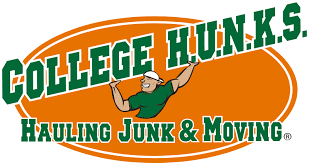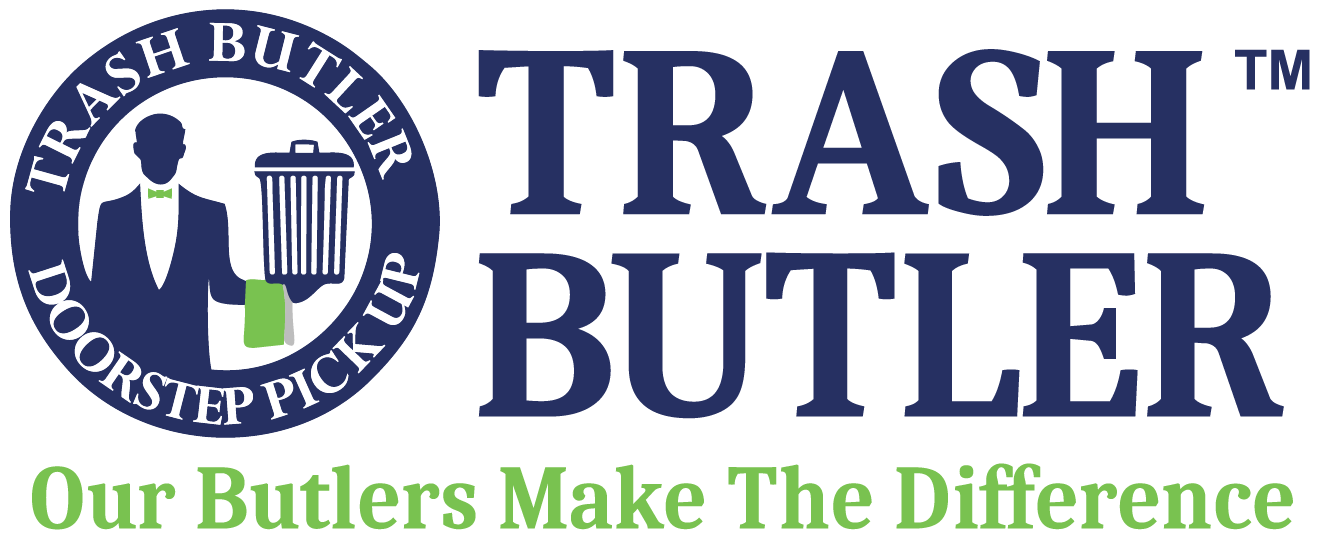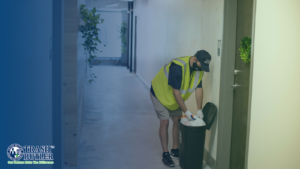Key Takeaways:
- Importance of Effective Management: Highlight how effective multifamily property management enhances tenant satisfaction, boosts property value, and meets regulatory compliance, which is crucial for attracting and retaining tenants in a competitive market.
- Integration of Technology: Emphasize the role of technology, such as smart home features, property management software, and IoT, in streamlining operations, improving efficiency, and meeting tenant expectations for modern living standards.
- Sustainability Initiatives: Showcase the value of implementing sustainable practices like waste management and energy-efficient upgrades. These practices appeal to environmentally conscious tenants, reduce operational costs, and enhance property attractiveness.
The landscape of multifamily property management is continually evolving to meet the demands of a dynamic market. Now more than ever, adopting innovative strategies that enhance apartment communities’ efficiency, sustainability, and overall appeal is crucial. Creating a vibrant environment can significantly boost tenant satisfaction and retention rates.
Today, residents are looking beyond mere housing; they desire a lifestyle that reflects their values, such as environmental stewardship and community involvement. Property managers can distinguish their communities by implementing strategic tips in multifamily property management, focusing on recycling and waste management initiatives.
This article explores the top multifamily property management tips for 2024, offering actionable insights to help property managers stay ahead of the curve. From leveraging cutting-edge technology and promoting green initiatives to enhancing tenant engagement and streamlining operations, these tips are designed to foster thriving communities and optimize property performance.
Whether you’re a seasoned professional or new to the field, these strategies will equip you with the knowledge and tools needed to excel in multifamily property management in 2024.
What Is Multifamily Property Management?
Multifamily property management encompasses the processes and services employed to oversee and administer residential properties that contain multiple dwelling units, such as apartments or condominiums. This specialized form of real estate management focuses on maintaining property value and ensuring the operations run smoothly to enhance residents’ living experience and maximize occupancy rates.
Key functions of multifamily property management include, but are not limited to, tenant acquisition and retention, rent collection, budgeting and financial reporting, property maintenance, and compliance with housing laws and regulations. Effective management ensures that the needs of both the property owners and the tenants are met harmoniously, often resulting in increased property value and heightened satisfaction among residents.
Why Effective Multifamily Property Management Matters In 2024
Effective multifamily property management is more crucial than ever in 2024 due to several key reasons:
Increasing Competition
- Market Dynamics: The multifamily housing market is becoming increasingly competitive, with new developments and rental options regularly entering it.
- Tenant Expectations: Tenants now have higher expectations regarding amenities, customer service, and overall living experience. Effective property management can differentiate a property and attract and retain tenants.
Rising Operational Costs
- Cost Management: Property managers face rising operational costs, including utilities, maintenance, and compliance with new regulations.
- Efficiency Improvements: Efficient property management practices can help control costs, improve resource allocation, and maximize profitability.
Evolving Technology
- Smart Solutions: Integrating technology in property management (e.g., smart home systems and online portals) enhances tenant satisfaction and operational efficiency.
- Data Utilization: Data analytics and automation improve decision-making and enhance operational effectiveness.
Regulatory Compliance
- Legal Requirements: Property managers must comply with evolving local, state, and federal regulations. Effective management ensures adherence to housing laws, environmental regulations, and safety standards.
Tenant Satisfaction and Retention
- Enhanced Experience: Providing a positive living experience through responsive maintenance, community engagement, and amenities increases tenant satisfaction.
- Retention Strategies: Retaining tenants reduces turnover costs and vacancies, contributing to long-term financial stability.
Sustainable Practices
- Environmental Responsibility: Implementing sustainable energy-efficient upgrades and waste management initiatives reduces operational costs and attracts environmentally-conscious tenants.
Key Challenges In Multifamily Property Management Today
Multifamily property management continues to evolve, and with it come various challenges that property managers must navigate to maintain profitability, tenant satisfaction, and operational efficiency in 2024. Addressing these issues strategically is crucial to the success of any multifamily property.
- Regulatory Compliance: Multifamily property managers find staying on top of local, state, and federal regulations increasingly challenging. Legislation concerning tenant rights, safety standards, and environmental regulations is regularly updated, and ensuring compliance is essential to avoid legal pitfalls and fines.
- Effective Tenant Screening: As the market becomes more competitive, finding the right balance between filling vacancies quickly and screening tenants thoroughly is a significant challenge. Ensuring reliable, long-term tenants while minimizing turnover and vacancy rates is critical for multifamily property managers.
- Maintaining Tenant Satisfaction: Elevated expectations for amenities and tenant services are rising. Residents seek convenience, technology integration, and sustainable living options. Keeping up with these demands while managing cost implications is a balancing act for property managers.
- Technological Integration: With the digital age in full swing, properties that lag in adopting property management software, online payment systems, and smart home technology may need to catch up. Staying updated with technology to streamline operations and improve tenant communications can be resource-intensive.
- Property Maintenance and Upgrades: Regular maintenance and periodic upgrades are essential to keep a property appealing and functional. However, managing these without disrupting tenants or overshooting the budget can be a major concern for multifamily property management.
- Environmental Sustainability: As environmental awareness increases, multifamily communities are expected to implement green practices, including waste management, energy efficiency, and sustainable landscaping. Properties that fail to adopt eco-friendly initiatives may face backlash and miss out on possible incentives and cost savings.
Tackling these challenges requires a forward-thinking approach and leveraging the appropriate resources to enhance operational capacities. Companies like Trash Butler™ play an integral role in addressing the environmental sustainability challenge, offering doorstep valet trash service and a recycling solution that aligns with the values of modern residents. Embracing such partnerships can be the key to overcoming hurdles in multifamily property management and ensuring a property thrives in 2024.
Enhancing Tenant Experience: Essential Tips For 2024
Here are some key tips to consider:
Personalize Resident Services
Tailored services are no longer a luxury but a necessity. Understanding your community’s diverse needs and offering personalized amenities can significantly enhance tenant satisfaction. Regularly gather feedback through surveys or informal gatherings to ensure your services meet and exceed resident expectations.
Incorporate Smart Home Technology
Technology is no longer just a convenience; it’s becoming an expectation for modern renters. Incorporating smart home features can elevate your resident experience and set your property apart. From keyless entry systems to smart thermostats, state-of-the-art in-home technology caters to modern renters’ growing desire for convenience and efficiency.
Streamline Communications
Clear and consistent communication is vital in multi-family property management. Implementing a centralized communication system allows for timely updates and responses to tenant inquiries. This can include a resident portal or app that provides easy access to maintenance requests, event notifications, and community news.
Prioritize Community Building
A sense of community can significantly impact tenant satisfaction and retention. Organize regular community events and activities to encourage interaction and foster a friendly atmosphere. This could include holiday celebrations, fitness classes, or social gatherings in communal areas.
Foster Sustainability Initiatives
More residents are seeking environmentally friendly living spaces. By partnering with experts like Trash Butler™, you can introduce sustainable waste management and recycling programs to your property. Trash Butler’s doorstep valet trash service not only adds convenience for residents but also demonstrates a commitment to sustainability, aligning with your property’s eco-friendly values.
Offer Exceptional Common Area Maintenance
The state of common areas often forms residents’ first impressions of a property. A well-maintained and aesthetically pleasing environment enhances the tenant experience. Regular upkeep, cleaning, and updating decor will show residents that management cares about the community’s well-being.
Employing these multifamily property management tips can help properties deliver a superior living experience that resonates with tenants. In doing so, they will meet modern renters’ demands and see tangible returns through enhanced loyalty and referrals. Remember, in multifamily property management, it’s not only the amenities you offer but the experience you create that defines the value of your property.
Key Technologies Transforming Multifamily Property Management
The multifamily property management landscape is undergoing a digital revolution. Gone are the days of paper files, endless phone calls, and reactive maintenance. Innovative technologies are streamlining operations, enhancing resident experiences, and boosting profitability. Here’s a glimpse at some key technologies transforming the industry:
Property Management Software
This is the central hub for many operations. Modern software offers features like online rent payments, lease management, maintenance request tracking, and resident communication tools. These save time, reduce errors, and empower residents with self-service options.
Smart Home Integration
Smart locks, thermostats, and leak detectors are becoming increasingly popular. These features offer residents convenience (think adjusting the temperature remotely!) while providing property managers with valuable data on energy usage and potential maintenance issues.
Internet of Things (IoT)
IoT connects various devices and appliances within a building, allowing for automation and remote monitoring. Imagine lights adjusting based on occupancy or water meters alerting managers to potential leaks. IoT streamlines operations, promotes preventive maintenance and potentially reduces utility costs.
Data Analytics and AI
Data is king in the modern world. Property management software and other tools generate a wealth of data on resident behavior, market trends, and maintenance needs. Advanced analytics and AI can help optimize rent, predict maintenance issues, and even resident profiling to target marketing efforts.
Resident Portals and Communication Tools
Online portals allow residents to submit maintenance requests, pay rent, and access important documents 24/7. Mobile apps paired with chatbots can answer FAQs instantly and streamline communication between residents and property managers.
Virtual Tours and 3D Visualization
Gone are the days of physical showings for every vacancy. Virtual tours and 3D visualizations allow potential tenants to explore properties remotely, increasing convenience and reducing vacancy rates.
These are just a few examples of how technology transforms multifamily property management. By embracing these advancements, property managers can create a more efficient, resident-focused, and profitable operation.
Budgeting Strategies For Successful Multifamily Property Management
Effective budgeting is integral to successful multifamily property management. It ensures that a property runs smoothly and remains financially viable. Let’s explore some strategies to help in crafting a comprehensive budget:
Accurate Forecasting
Projecting income and expenses accurately is the foundation of any solid budget. To achieve this, managers must closely analyze historical data and market trends while considering anticipated rental income or property expense fluctuations. This data-driven approach can highlight potential revenue streams and prevent unexpected shortfalls.
Prioritize Maintenance and Upgrades
Investing in preventative maintenance can mitigate costly repairs down the line. Budget for regular inspections and timely repairs of critical building systems such as HVAC, elevators, roofing, and plumbing. Additionally, earmarking funds for aesthetic and functionality upgrades can significantly enhance property value and attract prospective tenants.
Contingency Planning
Unexpected events, such as natural disasters or significant repairs, can wreak havoc on a tight budget. Multifamily properties should have a contingency line in their budget, typically between 5% to 10% of total expenses, to cover unexpected costs without compromising the property’s financial stability.
Sustainable Solutions
Incorporating sustainability initiatives into your budget can result in long-term cost savings. For multifamily property management, partnering with a company like Trash Butler™ can provide a unique selling point for eco-conscious residents while addressing waste management efficiently. Implementing their doorstep valet trash service and recycling solutions has been proven to streamline operations and enhance resident satisfaction.
Revenue Optimization
Examine additional revenue opportunities beyond rent, such as pet fees, parking, and amenity access charges. Evaluate market conditions and price these services competitively to boost the property’s income without comprising tenant retention rates.
Leverage Technology
Embracing property management software can streamline operations and financial tracking. Real-time budget monitoring and automated expense management reduce the likelihood of errors and help identify cost-saving opportunities.
Tenant Retention
Retaining existing tenants is less costly than finding new ones. Allocating part of the budget toward resident engagement activities and benefits can improve satisfaction and reduce turnover rates.
Vendor Relationships
Build strong relationships with reliable vendors and negotiate for better rates or long-term contracts. This can lead to reduced operating costs and more predictable budget planning. Regularly review contracts and market options to ensure competitive pricing and quality service.
By focusing on these strategic budgeting practices, multifamily property managers can create a robust financial plan that anticipates both the expected and unexpected, ensuring their properties’ success and sustained growth.
Implementing These Multifamily Property Management Tips For Success
The landscape of multifamily property management is constantly evolving, making it crucial to stay ahead of the curve. Below are the multifamily property management tips that can propel your community to the forefront of the industry.
Embrace Technology
Today’s rental market is increasingly influenced by millennial and Gen Z populations. To meet their expectations, incorporate smart home technology and offer digital convenience through online portals for rent payments, maintenance requests, and community updates.
Focus on Resident Experience
Enhancing the resident experience should be a key priority. Consider amenities that promote convenience and quality of life, such as offering a revolutionary doorstep valet trash service like Trash Butler™. Such premium services differentiate your community and contribute positively to the residents’ satisfaction.
Explore Sustainability Initiatives
Sustainability is no longer a mere checkbox for property compliance—it is a decisive factor for residents choosing where to live. Programs that support recycling and waste reduction are attractive to environmentally conscious renters. Incorporate Trash Butler™’s recycling solution, which aligns with sustainability goals, reinforcing your community’s environmental commitment.
Regularly Evaluate the Market
Keep abreast of local and national real estate trends to ensure your pricing and amenities remain competitive. Regular market analysis aids in informed decision-making regarding promotions, rent adjustments, and investment in amenities.
Foster a Strong Community
Building a sense of community among residents reduces turnover and attracts new tenants. Organize social events and facilitate community initiatives that encourage interaction and foster relationships between residents.
Invest in Staff Training
Your property management team is the backbone of your operations. Invest in continuous training and resources to update your staff with the latest industry practices and technologies. Empower them with the knowledge and tools necessary to deliver the highest standard of service.
Prioritize Maintenance and Upgrades
Proactiveness in maintenance and timely upgrades prevent small issues from becoming major problems. Maintain a schedule for regular checks and establish a rapid response system for repairs, ensuring that your residents always have a well-maintained and safe living environment.
By integrating these multifamily property management tips, your community will enhance operational efficiency and create a vibrant living space that residents proudly call home.
Final Thoughts
Successful multifamily property management in 2024 will come from adapting to technological advances, prioritizing resident satisfaction, and committing to sustainable practices. By keeping a finger on the pulse of industry trends and regulatory changes, property managers will be better poised to navigate the dynamic landscape of multifamily housing.
Incorporating these multifamily property management tips will streamline your operations and elevate your residents’ living experience. Remember, in a competitive market, details matter. Services like Trash Butler™, which provide a doorstep valet trash service and recycling solution, can significantly enhance your property’s value proposition.
By applying these multifamily property management tips and partnering with service providers like Trash Butler™, you are positioning your property at the forefront of industry best practices, ready for the challenges and opportunities 2024 offers.
Additional Read:
- Doorstep Trash Pickup For Multifamily Communities: What To Know
- How Multifamily Resident-Focused Trash Services Improve Community Living
- Guide To Multifamily Community Waste Management: Tips And Best Practices
Frequently Asked Questions
What are the key responsibilities of a multifamily property manager?
The primary responsibilities of a multifamily property manager include leasing and marketing the property, collecting rent, handling maintenance and repairs, and ensuring compliance with landlord-tenant laws. Property managers also create budgets, prepare financial reports, and engage with tenants to ensure the satisfaction and safety of the community.
How can property management software benefit multifamily properties?
Property management software can streamline operations by automating tenant screening, lease management, rent collection, and maintenance requests. It can facilitate better communication with tenants and provide valuable insights through detailed reporting and data analysis. This can result in cost savings, more efficient operations, and a greater ability to scale services.
What are the best practices for tenant screening in multifamily property management?
Best practices for tenant screening include conducting thorough background and credit checks, verifying income and employment, checking references, and adhering to fair housing laws. It’s also important to have a consistent screening process for all applicants to avoid discrimination and to ensure that you find reliable tenants who will pay rent on time and care for the property.
How can I improve tenant retention in multifamily properties?
Improving tenant retention involves providing excellent customer service, responding promptly to maintenance requests, offering desirable amenities, keeping the property well-maintained, and fostering community. Regularly seeking feedback from tenants and addressing their concerns can increase satisfaction and encourage them to renew their leases.
How can multifamily property managers enhance energy efficiency?
Implementing LED lighting, using energy-efficient appliances, improving insulation, and installing programmable thermostats can enhance energy efficiency. Property managers can also encourage residents to participate in recycling programs and provide resources for sustainable living practices.
What legal considerations are important in multifamily property management?
Important legal considerations include complying with fair housing laws, adhering to state and local landlord-tenant regulations, maintaining proper documentation of all transactions and communications, and ensuring the property meets all safety codes. It’s vital to stay up-to-date on legislative changes and consult with legal professionals when necessary.
How can property managers handle tenant complaints effectively?
Effectively handling tenant complaints involves listening actively to the tenant’s concerns, acknowledging the issue, investigating promptly, and taking appropriate action to resolve the complaint. Maintaining open and honest communication throughout the process will help to build trust and reduce potential escalations.
How often should property managers communicate with tenants?
Property managers should communicate with tenants regularly to inform them about any property updates, maintenance schedules, and community events. The frequency can vary depending on the situation, but it’s essential to be accessible and to provide various communication channels, such as email, phone, and in-person meetings.
What are the benefits of hiring a professional property management company for multifamily properties?
Hiring a professional property management company provides expertise in property operations, marketing, legal compliance, and access to a network of vetted contractors and vendors. It can also alleviate the burden of daily management tasks, allowing owners to focus on strategic growth and investment opportunities.
How can property managers foster a sense of community among tenants?
Fostering a sense of community can be done by organizing social events, creating communal spaces where tenants can interact, facilitating a community newsletter or social media group, and promoting local businesses within the community. Encouraging tenant participation in decision-making processes regarding community improvements is also important.





